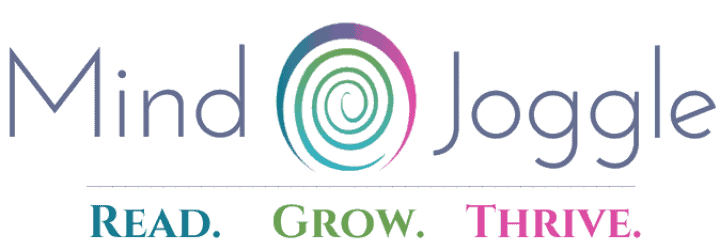“Well-Read” is Dead: Here’s What to Aim for Instead
Traditional ideas of what it means to be “well-read” are outdated. Being well-read now means diversity in authors, perspectives, and genres, and doesn’t have to include only classics by dead white men.
This post may include affiliate links. That means if you click and make a purchase, I may earn a small commission. Please see Disclosures for more information.
Here’s a question for avid readers: do you consider yourself well-read?
I read more than 100 books per year. I think about, read about, and discuss books constantly.
But somewhere in the back of my mind, because I’ve only read *some* classics and have never read some of the well-known heavy-hitters, I’ve always felt like I am not truly well-read.
When we talk about being “well-read,” we tend to mean someone who is familiar with a particular set of classic literature, written by a narrow group of authors.

Generally, these authors are white men. We can all name the usual suspects: Ernest Hemingway, Vladimir Nabokov, Herman Melville, George Orwell, Charles Dickens, and of course, William Shakespeare–the list goes on.
A few women like Jane Austen, Emily Brontë, and Louisa May Alcott are usually thrown in, with a couple of authors of color like Zora Neale Hurston or James Baldwin for some token nods to diversity.
However, this unofficial list of books and authors ignores the vast and diverse array of literature in the world today, written by authors of all backgrounds, addressing a variety of themes and ideas.
More importantly, it ignores the absolutely essential voices representing the lived experiences of authors who have been marginalized due to race, gender, sexuality, class, or ability, offering viewpoints well outside the narrow realm of “mainstream” white male voices.
So here’s my hot take: well-read is dead.
At least, traditional notions of what it means to be well-read should be put to rest. This is especially true for people outside of academia who are engaging with books, literature, and authors in meaningful, life-changing ways.
So let’s explore what it means to be well-read now, and how we can broaden our literary horizons to include a wider range of perspectives.
Pin this!

Traditional Ideas about “Well-Read”
The traditional notion of being well-read has been tied to a narrow definition of the literary canon–a term used to describe the works of literature that are considered to be of the highest quality and value, and dominated by white, male, Western writers like those named above.
Try as we might, it’s hard to get away from books like Great Expectations, The Great Gatsby, and Anna Karenina being the litmus test for well-read status.
Those are great books, to be sure, but they also feel a little…tired.
This limited definition of “good literature” has perpetuated fixed and objective standards of what it means to be well-read, which in turn has contributed to a homogenization of literary taste and cultural perspective. (Let’s not forget that, for decades, “well-read” was actually a modifier for the full phrase “well-read man”–obviously the only demographic that should aspire to the status. *full sarcasm intended*)
Traditional ideas about being well-read also exclude readers with deep and legitimate interests in genres or topics outside of the canon, such as science fiction, fantasy, or romance novels.
Expanding the Definition of Well-Read
While I fully admit to ambivalence about the value of the “well-read” label at all, there’s no denying its common use among readers, as well as its aspirational ethos. Expanding the definition of what it means to be well-read can only serve to foster a more inclusive and diverse literary culture.
When we limit ourselves to a narrow definition of what constitutes good literature, we miss out on the opportunity to learn from and engage with a range of cultures, experiences, and perspectives.
Pin this!

By expanding our literary horizons and reading works by writers from different backgrounds, we gain a deeper understanding of the world around us and challenge our own assumptions and biases.
Additionally, an expanded definition of “well-read” can help combat stereotypes and prejudices by exposing readers to different narratives and ways of thinking–benefiting both individual readers and society as a whole.
Diversifying the Literary Canon
In recent decades, there has been a growing recognition of the importance of diversity and inclusion in literature, and for many, the definition of what it means to be well-read has expanded accordingly.
This expansion has led to the recognition of a more diverse range of authors and genres as part of the literary canon. For example, black women authors such as Toni Morrison, Maya Angelou, and Chimamanda Ngozi Adichie are now widely recognized as among the most important writers of their generations.
No doubt, technology, and social media have helped drive this change. E-readers and audiobooks have made it easier than ever for readers to access a wide range of literature, while social media connects readers who share recommendations–and speak out against problematic publishing practices.
Publishers are forced to listen to these voices, which has led to a greater diversity of reading choices (though there is still plenty of inequity in the publishing world).
This more-level playing field has helped to break down at least some barriers to entry for readers and authors who have been excluded from the literary world in the past. Continuing to read–and demand–books by marginalized authors will only serve to diversify the literary canon.
The historical context of the literary canon has played a significant role in shaping our understanding of what it means to be well-read.
By expanding the literary canon and empowering regular, diverse readers to participate in literary conversations, the definition of well read can become more inclusive, diverse, and accessible to readers from all backgrounds and interests.
How to Become Well-Read
Read Widely and Diversely
Reading widely and diversely is now essential to being well-read. By reading books from a variety of genres, authors, and time periods, you’ll be exposed to a range of literature, authors, and perspectives.

To ensure that you’re reading widely and diversely, here are several strategies you can use:
- Set a goal to read a certain number or percentage of books from different genres or by authors from different cultural backgrounds each year.
This can help you stay accountable and motivated to explore new literary territory. To make this easy, you could commit to a cadence of alternating your usual reads with more diverse ones. A reading challenge can help with a specific reading goal like this.
It won’t be long until you don’t have to make a conscious effort to incorporate diversity in your reading–these books and authors will likely fall into your natural reading interests. - Seek recommendations from a variety of sources.
Reading reviews and blogs, and asking friends, family, or colleagues for book recommendations is a great place to start, as is joining a book club or online community to discuss books.
But seeking recommendations specifically from diverse sources can also help you discover good books you may not have otherwise found. Well-Read Black Girl is one amazing source; even if you don’t participate in the book clubs, they have reading lists filled with incredible black women writers and multicultural voices to help you expand your reading list. - Be intentional about the books you choose to read.
Challenge yourself to read books that are outside of your comfort zone or that explore topics you may not be familiar with. This can help you broaden your perspective and gain a deeper understanding of different cultures, experiences, and ways of thinking. - Diversify the format of your reading. This can include reading books in different languages or books in translation; listening to audiobooks; or exploring graphic novels, short stories, or poetry collections. By diversifying the format of your reading, you can engage with different storytelling techniques and expand your understanding of literary form.
- Challenge your personal biases: It’s important to recognize and challenge our personal biases, whether when reading or just existing in the world. Make a conscious effort to seek out works by underrepresented authors and to step outside of your comfort zone when choosing what to read.
Read Niche and Genre Literature
While it’s important to read widely and diversely (and the strategy suggested above of alternating books can help ensure this happens), there are also benefits to reading deeply in a specific genre or area of literature–and people who do are no less “well-read” than others.
Some readers may never pick up Little Women or Don Quixote, but they may be deeply familiar with all of the paranormal romances of that particular canon. Who would dare not call those experts in the genre “well-read”?
Pin this!

It’s also important to remember that most genres have diverse voices and perspectives as well. Seeking them out broadens your reading both in general and within the genre–and it’s up to readers like you to ensure those voices are amplified in order to continue elevating the genres you love.
Here are some benefits of reading niche literature and deep reading in specific genres:
- Deeper understanding: By reading extensively within a specific genre, you’ll develop a deeper understanding of the conventions, themes, and nuances of style and structure within that genre. This can help you appreciate the nuances and complexities of the genre (this is especially important for aspiring authors!).
- Greater appreciation for the genre: You may come to understand the historical or cultural context that has shaped the genre, and develop a deeper appreciation for the authors and works that have contributed to its development.
- Community building: Reading niche literature can connect you with like-minded readers who share your interests. Whether it’s through book clubs, online forums, or literary events, reading becomes social when you find others who love the same books.
- Personal growth: Finally, becoming an expert in a specific genre can be personally fulfilling. You may find intellectual and creative satisfaction, as well as a greater appreciation for the power of reading and literature to shape our understanding of the world.
If you, as a reader, have ever experienced imposter syndrome because you felt like your reading habits disqualify you from being “well-read,” take heart. Definitions are evolving, as is the literary canon.
The notion of the elite, “well-read man”–who both exemplifies and defines what it means, in order to gatekeep it–is antiquated and obsolete.
In its place is a broader, modern definition of “well-read,” one that includes diverse authors, readers, and perspectives. This new definition, however, is hard-won and depends on readers to defend it, while continuing to expand it. Marginalized voices remain marginalized and need supporters in the reader community.
Thanks for being part of that reader community, my friends.
I’d love to know your thoughts on what makes someone “well-read.”
- Do you consider yourself well read?
- Are the classics still a litmus test for “well-read” status?
- Can niche expertise cement a reader as well-read?
Please share your thoughts in the comments!
